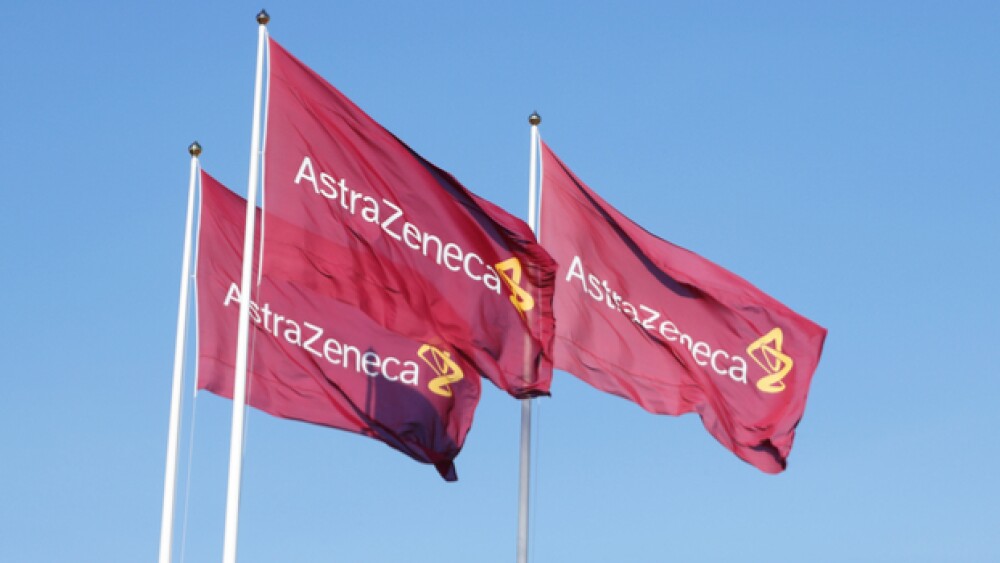AstraZeneca topped off a very busy week with its first-quarter financial report, citing a total of $11.390 billion in revenue, a whopping increase of 60%.
Courtesy of Roland Magnusson/Getty Images
AstraZeneca topped off a very busy week with its first-quarter financial report, citing a total of $11.390 billion in revenue, a whopping increase of 60%. That was driven by the acquisition of Alexion and several contracts for Vaxzevria, its COVID-19 vaccine developed with the University of Oxford.
“2022 has started strongly for AstraZeneca,” CEO Pascal Soriot said. “Farxiga achieved $1 billion revenue in the quarter and our oncology medicines delivered products sales growth of 18%, despite COVID-19 continuing to impact cancer diagnosis and treatment. High-level results from the Destiny-Breast04 trial pointed to Enhertu’s potential to redefine treatment of HER2-low metastatic breast cancer, and Ultomiris became the first and only long-acting C5 inhibitor approved for generalized myasthenia gravis in the U.S.”
The company also announced plans to open a new location in Cambridge, Massachusetts. This site will act as a strategic R&D center for the company in addition to being Alexion’s new corporate headquarters. It will house about 1,500 R&D, commercial and corporate staffers into a “single purpose-built space in Kendall Square, Cambridge, MA.”
The location is expected to be completed in 2026 and contain more than 570,000 square feet with room for expansion.
Soriot stated, “Today’s announcement is a milestone moment following the acquisition of Alexion in July 2021. Our combined company has already successfully leveraged internal scientific synergies, and this move will act as a catalyst for even more external collaboration and innovation.”
He went on to say, “Kendall Square, Cambridge, is the heart of the life sciences and innovation hub of the greater Boston area, and our new site will put us right at the center of this space. The move will provide access to some of the most innovative partners in academia and biotech, offering opportunities to accelerate our growth and collaborate with like-minded organizations as we continue to push the boundaries of science to deliver advances for patients.”
AstraZeneca closed its deal with Alexion in 2021, acquiring the company for $39 billion. AstraZeneca’s focus has typically been on oncology, cardiovascular, renal and metabolism and respiratory diseases. But Alexion focuses on complement inhibition, which is associated with immune-mediated rare diseases, which has been an increasing interest of AstraZeneca’s.
Alexion’s branded products include Soliris (eculizumab) approved for paroxysmal hemoglobinuria (PNH), atypical hemolytic uremic syndrome, generalized myasthenia gravis and neuromyelitis optica spectrum disorder. Another branded product includes Ultomiris (ravulizumab), a second-generation C5 monoclonal antibody.
As previously reported by BioSpace, on Thursday, the U.S. Food and Drug Administration approved Ultomiris for adults with generalized myasthenia gravis (gMG). It is the first long-acting C5 complement inhibitor to be approved for anti-acetylcholine receptor (AChR) antibody-positive gMG patients. They make up about 80% of all gMG patients. Patients with this neuromuscular disease have intense fatigue, difficulty speaking, swallowing, eating, and complications with vision and breathing.
Alexion CEO Marc Dunoyer said, “Since bringing forward the first complement inhibitor, we’ve continued to listen to the community and focused innovation on the needs of gMG patients. We’re proud to deliver on this commitment with today’s approval. Ultomiris, the only long-acting C5 inhibitor, will benefit a broader range of patients, including those with milder symptoms.”
Also today, Innate Pharma, based in Marseille, France, announced that AstraZeneca had dosed the first patient in its Phase III Pacific-9 trial of durvalumab with monalizumab or oleclumab in patients with unresectable, Stage III non-small cell lung cancer (NSCLC) who have not progressed after definitive platinum-based concurrent chemoradiation therapy (CRT). This triggered a $50 million milestone payment from AstraZeneca to Innate.
Monalizumab is Innate’s lead partnered asset, a potentially first-in-class immune checkpoint inhibitor targeting NKG2A receptors expressed on tumor-infiltrating cytotoxic CD8+ T cells and NK cells. Durvalumab is AstraZeneca’s Imfinzi, an anti-PD-L1 checkpoint inhibitor. Oleclumab is AstraZeneca’s experimental anti-CD73 monoclonal antibody.
“Durvalumab has transformed the treatment of patients with unresectable, Stage III NSCLC, and we’re excited by the promise of extending its benefit through novel combinations with two potential first-in-class monoclonal antibodies demonstrating strong clinical activity,” Susan Galbraith, executive vice president, Oncology R&D, AstraZeneca said. “Based on the stand-out results from Coast, we are pleased that the Phase III trial is underway, which we hope will bring new treatment options to patients and further increase the potential for long-term survival benefit in this setting.”





